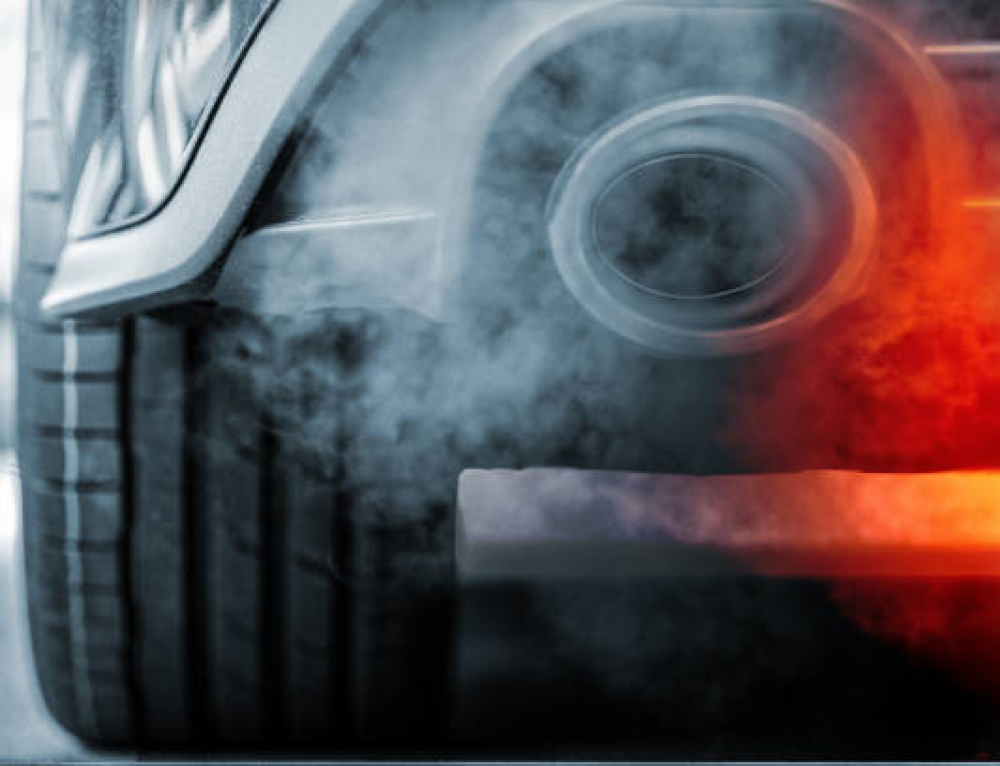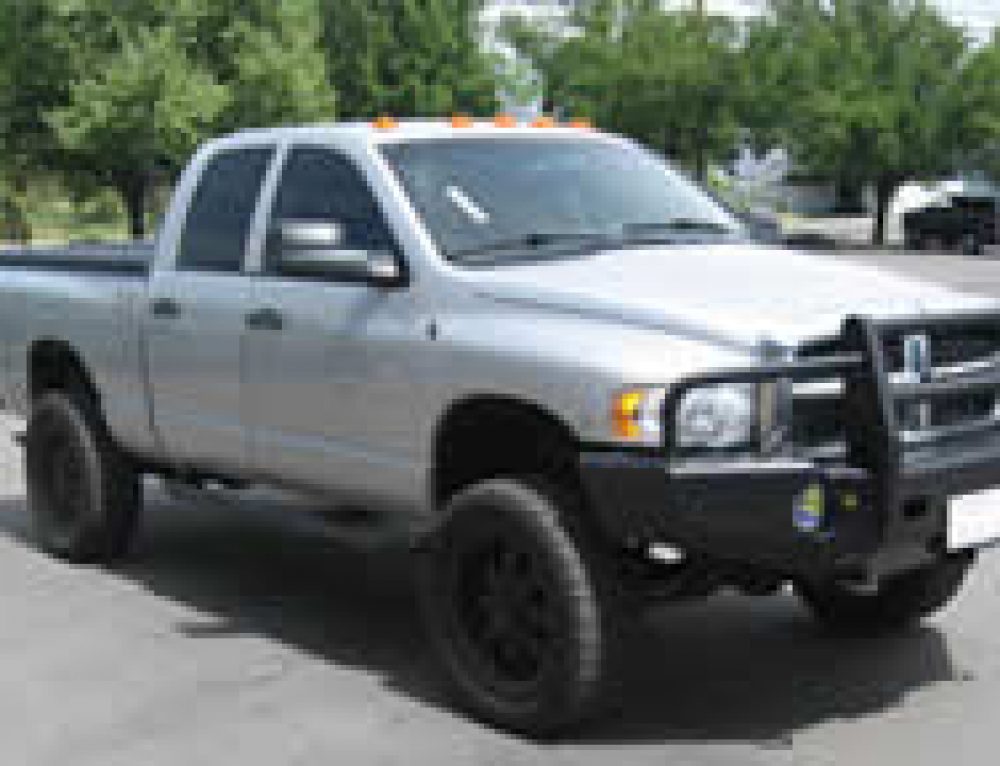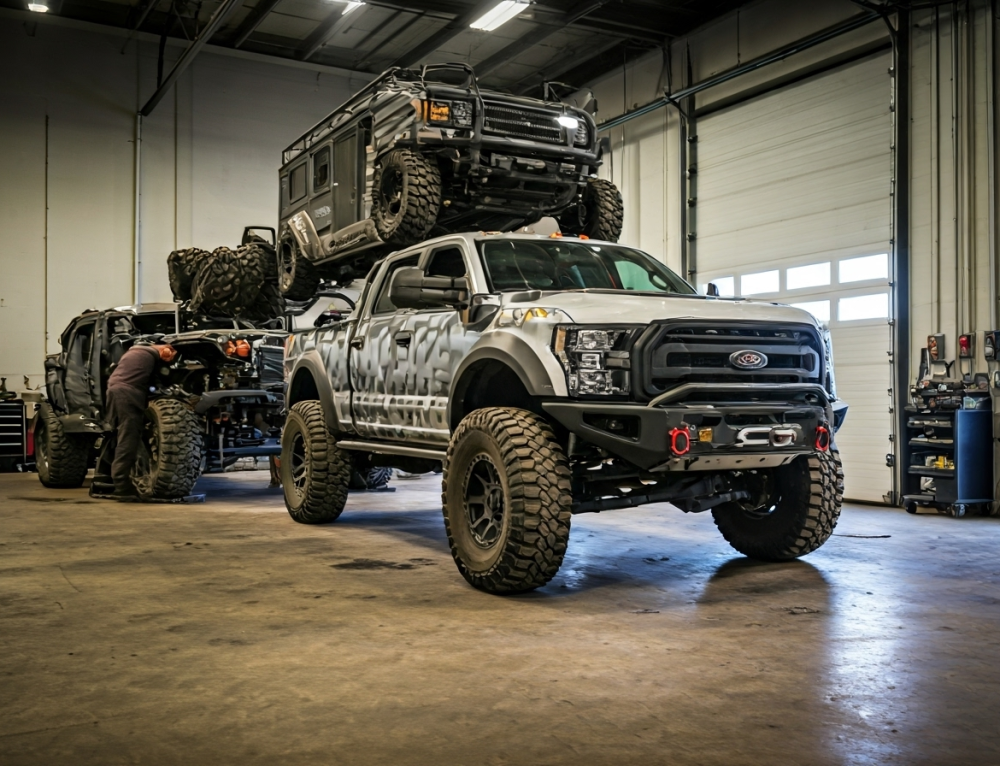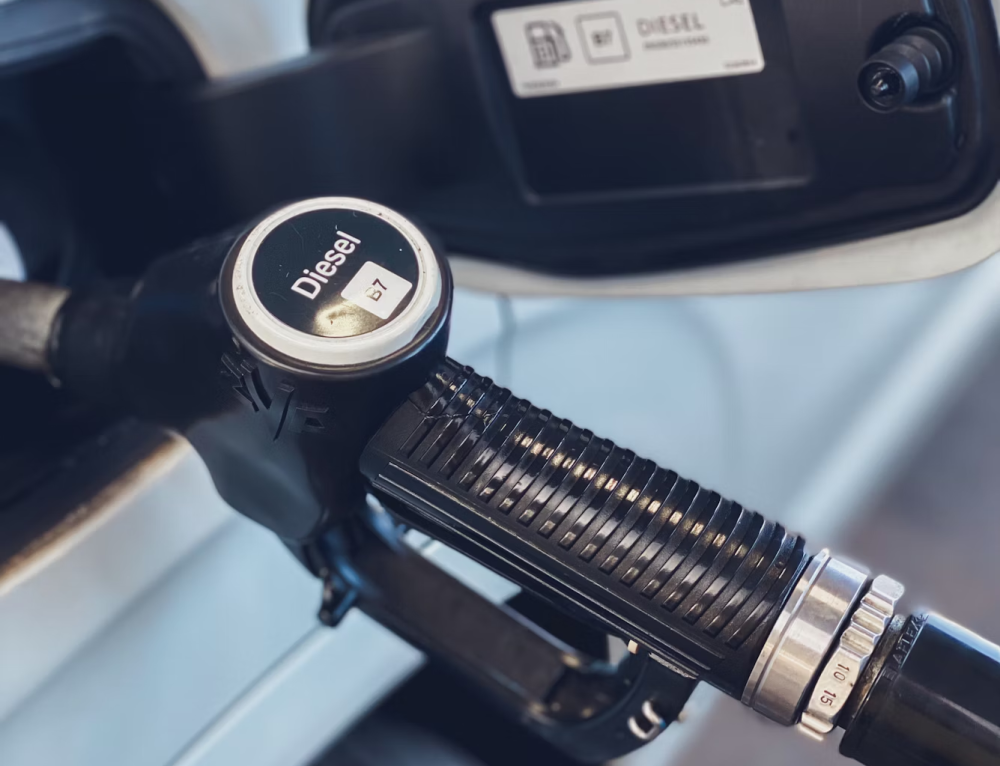Key Takeaways
GVWR is key: Gross Vehicle Weight Rating (GVWR) is the primary factor distinguishing light duty vs medium duty diesel vehicles. Light-duty vehicles generally weigh under 8,500 lbs, while medium-duty vehicles range from 8,501-26,000 lbs. This rating, measured in lbs, heavily influences engine design and capabilities. The FHWA and EPA use GVWR as an important metric in categorizing vehicles.
- Different design philosophies:
- Light-duty: Focus on fuel efficiency and stricter emissions compliance, often with more complex emissions control systems. Think passenger vehicles and smaller pickups.
- Medium-duty: Prioritize durability, longevity, and high torque output for sustained heavy loads. Think larger vans, box trucks, and heavier pickups.
- Different design philosophies:
- Maintenance matters:
- Medium-duty diesels generally have longer oil change intervals but may require more frequent fuel filter, coolant, and air filter maintenance due to heavier use and higher operating stresses.
- Light-duty diesels may require more frequent oil changes and have more complex, and potentially more demanding, emissions system maintenance (e.g., DPF cleaning).
- Maintenance matters:
- Phoenix Diesel Repair expertise: Choosing a mechanic specializing in diesel engines, like Phoenix Diesel Repair, is crucial. They understand the specific needs of both light and medium-duty diesel, providing tailored maintenance plans.
- Proactive maintenance is essential: Regular, informed maintenance, based on the vehicle’s GVWR, engine type, and usage, is vital for long-term reliability and cost savings. Proper maintenance helps ensure that a vehicle, be it a Ford or a Ram, stays on the road.
________________________________
Ever wonder why your neighbor’s Ford F-150 seems to be in the shop a lot less than that delivery van constantly zipping around town? It might not be what you think. We’re talking about a fundamental difference between light duty vs medium duty diesel vehicles.
Here at Phoenix Diesel Repair, we see these differences firsthand, and it’s a big difference indeed. Let’s dive into the world of diesel engines, but not the heavy-duty diesel rigs you see dominating the highway. No, we’re talking about the workhorses a little closer to home: the ones powering many of the commercial vehicles that keep our cities running.
Think pickup trucks and some larger SUVs on the light-duty side, and larger cargo vans, box trucks, and even that small dump truck you see around town on the medium-duty side of things. Understanding light duty vs medium duty diesel distinctions isn’t just for gearheads. It can mean the real difference between a reliable vehicle and one that’s constantly draining your wallet in repairs.
Understanding the Classes
While it’s easy to spot the size difference between a pickup truck and a delivery van, that’s just the beginning of the story. What really sets light-duty and medium-duty vehicles apart is something called Gross Vehicle Weight Rating, or GVWR. Understanding the difference between light duty vs medium duty diesel is crucial when selecting the right vehicle for your needs.
Think of GVWR as the maximum weight a vehicle can safely handle – including itself, passengers, fuel, and all its cargo. This rating, measured in lb, is a key factor used by both the Federal Highway Administration (FHWA) and the Environmental Protection Agency (EPA) to classify vehicles. It is one of the primary ways by which these two entities categorize vehicles in the United States.
Here’s where it gets interesting for us diesel fans. GVWR has a big impact on how a vehicle is built, especially its engine.
Let’s break it down:
Light Duty Vehicles (generally under 8,500 lbs GVWR):
- Examples of class: Your everyday passenger vehicles, including most pickups like the Ford F-150 or the Ram 1500, and many SUVs.
- Diesel details: These vehicles can have diesel engines. When they do, those engines tend to be smaller displacement (around 3.0-liter). These engines are designed to balance power with fuel efficiency.
Medium Duty Vehicles (generally 8,501 to 26,000 lbs GVWR):
- Examples of class: Larger cargo vans, box trucks, those smaller dump trucks you see in town, and beefier pickups like the Ford F-350/450/550 or the Ram 3500 equipped with the 6.7-liter Cummins diesel.
- Diesel details: Here, diesel technology takes a turn towards durability and torque. These engines are built to handle heavier loads for longer periods. They have higher cylinder pressures and generally operate at a lower RPM than their light-duty counterparts. This is why they are more suited for activities like power generation.
In short, the higher the GVWR, the more robust the engine needs to be. While both light duty vs medium duty diesel vehicles can be found with diesel engines, the engines found in medium-duty vehicles are designed to handle much heavier workloads over the long haul. So, while size is an obvious difference, the real story lies under the hood, in the heart of the diesel engine itself.
Diesel Technology: Built for the Job
We’ve established that GVWR is a major differentiator between our vehicle classes, and now we’ll see how that plays out in the diesel technology itself. When discussing light duty vs medium duty diesel, it’s clear that while both share the same basic principles of operation, their specific designs cater to very different demands. It’s a big difference.
Light-Duty Diesel Focus
Think of these as the sprinters of the diesel world. They’re designed for efficiency and meeting stricter EPA emissions regulations.
- Fuel efficiency: Light-duty diesels often prioritize fuel economy, making them attractive for everyday driving.
- Emissions control: They tend to have more complex emissions control systems to comply with stringent environmental standards. This can mean more components and, potentially, more maintenance over time.
Medium-Duty Diesel Focus
These are your marathon runners. Built for endurance, torque, and longevity under constant heavy loads.
- Durability: Medium-duty diesels are constructed with heavier-duty components to withstand the higher stresses of hauling and towing. This robustness is key for vehicles that spend their lives working hard. The cylinders of these engines are subject to much higher pressures than those of light-duty vehicles. As such, they are built stronger.
- Power delivery: They’re tuned to deliver more low-end torque for pulling power, often at lower RPMs, which contributes to their longevity. This is why they are so well suited for activities like power generation.
Key Takeaway
It boils down to this: light-duty diesels are engineered for a balance of performance and efficiency in everyday use, while medium-duty diesels are purpose-built for sustained heavy-duty work. This fundamental difference in their intended use dictates many of the design choices, ultimately leading to variations in their maintenance needs, which is what we’ll explore next. When considering “light duty vs medium duty diesel,” the lb rating of a vehicle is an important factor in determining what sort of engine the vehicle will be equipped with.
Maintenance Differences: Where the Rubber Meets the Road
Now that we understand the core differences in how these engines are built, let’s talk about what that means for their upkeep. This is where understanding diesel technology can really save you money and headaches. Here is where having an idea of how the FHWA and the EPA classify vehicles can be of help.
1. Oil Change Intervals
- Medium-duty: Thanks to their larger oil capacities and robust design, medium-duty diesels can often go longer between oil changes. Their engines are designed to handle more soot and contaminants.
- Light-duty: Light-duty diesels, with their focus on emissions and tighter tolerances, might require more frequent oil changes to maintain optimal performance.
2. Fuel Filter Replacements
- Medium-duty: The higher fuel pressures in these engines, combined with the potential for exposure to dirtier environments (think construction sites), can lead to faster fuel filter clogging. Regular replacement is crucial. The fact that these engines are more suited to power generation than light-duty engines can also play a role here.
- Light-duty: While still important, fuel filter changes might be less frequent in light-duty vehicles operating under normal driving conditions.
3. Coolant System Maintenance
- Medium-duty: Higher operating temperatures, especially under heavy loads, put more stress on the cooling system. Regular coolant flushes and inspections are vital to prevent overheating and engine damage. The cylinders of these engines need more cooling than those of light-duty engines.
- Light-duty: Standard coolant maintenance schedules are usually sufficient for light-duty vehicles.
4. Air Filter Replacements
- Medium-duty: If your medium-duty vehicle frequently operates in dusty environments, like a dump truck on a construction site might, expect to replace air filters more often.
- Light-duty: Air filter replacements are typically less frequent in light-duty vehicles under normal use.
5. Emissions System Maintenance
- Light-duty: Due to stricter EPA regulations, light-duty diesels often have more complex emissions systems (like DPFs – Diesel Particulate Filters). These systems may require periodic cleaning or regeneration, adding to the maintenance schedule.
- Medium-duty: While medium-duty diesels also have emissions controls, they might be less complex and require less frequent maintenance than their light-duty counterparts. However, it is important to note that heavy-duty diesel vehicles are often built to be maintained for longer than medium-duty engines.
The Phoenix Diesel Repair Advantage
So, what does all this diesel talk mean for you and your vehicle? It means that choosing the right maintenance partner is crucial. That’s where Phoenix Diesel Repair comes in.
Why Choose Us?
- We know diesels: We’re not just general mechanics. We specialize in diesel engines, and we understand the nuances between light-duty, medium-duty, and even heavy duty diesel vehicles. We have worked on countless vehicles, from servicing a 3.0-liter Ford to working on a 6.7-liter Cummins engine in a Dodge Ram rig. We have even worked on a dump truck or two in our time. We know what to do to keep your diesel vehicle on the road. We are aware of how the FHWA and the EPA classify vehicles, and of the diesel technology that goes into servicing each class of vehicle.
- Tailored service: We don’t believe in one-size-fits-all solutions. We take the time to understand your vehicle’s specific needs, its GVWR, its lb rating, its usage, and your driving habits to create a customized maintenance plan.
- Experience you can trust: We’ve seen it all, from routine maintenance on everyday pickups to complex repairs on hard-working commercial vehicles. Our experience translates to accurate diagnoses and efficient repairs, saving you time and money. We are just as comfortable working on a Ford as we are working on a Ram.
- Transparent communication: We’ll always explain what we’re doing and why, so you’re never left in the dark. We believe in empowering our customers with knowledge.
More Than Just Repairs
At Phoenix Diesel Repair, we’re not just about fixing problems; we’re about preventing them. We believe that proactive maintenance is the key to keeping your diesel vehicle running smoothly for years to come.
(__________________________________)
So, we’ve taken a deep dive into the world of light-duty and medium-duty diesels, exploring how their differences go far beyond just size. From engine design to maintenance needs, understanding these distinctions can make a real difference in your vehicle’s performance and your wallet.
Choosing the right maintenance schedule isn’t just a good idea; it’s essential for the longevity and reliability of your diesel vehicle, whether it’s a light-duty pickup or a medium-duty workhorse. At Phoenix Diesel Repair, we’re passionate about diesels, and we’ve built our reputation on providing expert service tailored to each vehicle’s specific needs. We know the ins and outs of diesel technology, from the smallest 3.0-liter engines to the 6.7-liter Cummins, and we’re committed to keeping your vehicle running at its best.
Contact Phoenix Diesel Repair today for a consultation. We’ll help you create a maintenance plan that’s right for your needs and budget, whether you drive a Ford, a Dodge, a Ram, or any other make of vehicle. Let us put our expertise to work for you. We’re proud to serve the Arizona community, providing honest, reliable service. We look forward to hearing from you!
Frequently Asked Questions
What is the difference between light duty vs medium duty diesel vehicles?
The primary difference between light duty vs medium duty diesel vehicles is their Gross Vehicle Weight Rating (GVWR). Light-duty vehicles typically have a GVWR under 8,500 lbs, while medium-duty vehicles range from 8,501 to 26,000 lbs. This distinction affects engine size, durability, and overall vehicle performance.
How does GVWR impact light duty vs medium duty diesel engines?
GVWR plays a crucial role in light duty vs medium duty diesel engines. Light-duty diesel engines focus on fuel efficiency and emissions control, while medium-duty diesel engines prioritize torque, durability, and long-term heavy load capacity. The higher the GVWR, the more robust the engine design.
Which type of diesel vehicle requires more maintenance: light duty or medium duty?
When comparing light duty vs medium duty diesel vehicles, medium-duty diesel engines generally have longer oil change intervals but require frequent fuel filter and air filter maintenance due to heavier workloads. Light-duty diesel engines may need more emissions system maintenance, such as DPF cleaning, due to stricter EPA regulations.
What are some examples of light duty vs medium duty diesel vehicles?
Examples of light duty vs medium duty diesel vehicles include:
- Light-duty: Ford F-150, Ram 1500, Chevrolet Silverado 1500
- Medium-duty: Ford F-350/F-450, Ram 3500, Box Trucks, Delivery Vans, Small Dump Trucks
Which type of diesel vehicle is better for long-term durability?
For sustained heavy-duty work, medium-duty diesel vehicles are the better choice due to stronger engine components, higher torque output, and lower operating RPMs. In contrast, light-duty diesel vehicles are optimized for daily commuting and fuel efficiency.
Do light duty vs medium duty diesel vehicles have different emissions regulations?
Yes. Light duty vs medium duty diesel vehicles must comply with different EPA emissions standards. Light-duty diesels have stricter emissions controls, requiring more complex exhaust treatment systems like Diesel Particulate Filters (DPFs), while medium-duty diesels focus more on durability and power output.
How do maintenance costs compare for light duty vs medium duty diesel vehicles?
The maintenance cost of light duty vs medium duty diesel vehicles depends on usage and workload. Medium-duty vehicles typically have higher upfront maintenance costs due to larger engines and heavier-duty parts, but they last longer under heavy workloads. Light-duty diesels may have lower maintenance costs initially, but their complex emissions systems can lead to expensive repairs over time.





